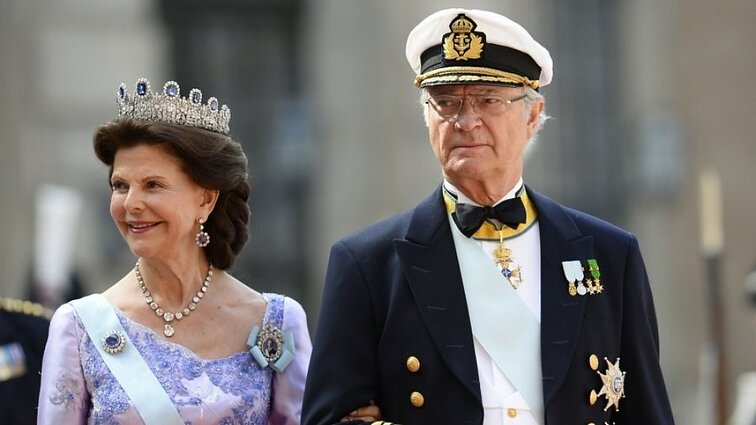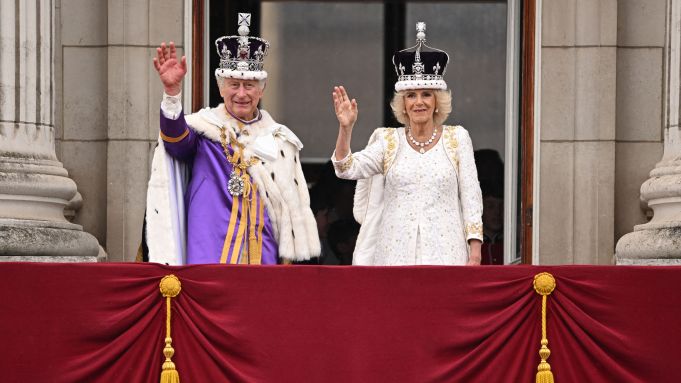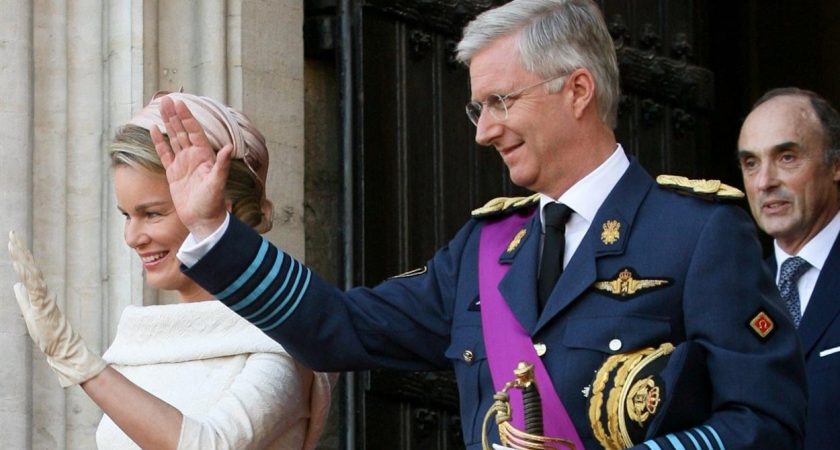Many of us grew up with fairytales of princes and princesses. To some in Europe, monarchies are more real, as their home nations have a king or queen as the official head of state. So while most European monarchies have been abolished, there are currently twelve sovereign monarchies in Europe. Seven of them are kingdoms.
The British monarchy is probably the most well-known for people outside of Europe. The death of Queen Elizabeth II in September 2022 led to an outpouring of love from all around Europe and the world for the long-reigning monarch. But the British people aren’t necessarily the biggest lovers of their monarchy as an institution. So what do Europeans think about these royal households?
Nordic love for the monarchy?
The Nordic countries - Denmark, Norway and Sweden - are known for democracy and happy citizens. Even though these countries always rank high in liberal values, many of their citizens surprisingly also have favourable views of their monarchies.
In Denmark, a notable majority favours the preservation of the monarchy. When asked in 2018 if they wanted Denmark to be a monarchy with a royal head of state or become a republic with a president, 76.7% of Danes preferred the monarchy. The support for the monarchy had grown over the years. When Queen Margrethe II ascended in 1972, only 42% of Danes favoured keeping the royal family.
Norwegian support for the royal family is even higher. In 2017, 81% of Norwegians approved the monarchy as a form of government. The country even regularly votes on this. Every year, there is a debate on the Norwegian constitution and nearly always a vote on whether to replace the monarchy with a republic. So far, the elected governments have voted against this proposal.
The dissident voices are growing slightly in neighbouring Sweden, where the support for abolishing the monarchy has grown. The most recent survey is a bit old - from 2010 - but it showed the number of Swedes willing to abolish the monarchy had nearly doubled in a decade. In the survey commissioned by the Swedish Republican Association, a meagre 58% of Swedes favoured the monarchy.

King Carl XVI Gustav of Sweden and Queen Silvia
But it’s not all lost for the Swedish royal family. Another survey from 2016 saw residents in three of the biggest cities in Sweden favour sticking with the monarchy. In Stockholm, 74% wanted to keep the royal family in the neighbourhood, with only 15% calling for it to be abolished.
Dark clouds for certain European monarchies?
But favourable opinions aren’t necessarily expressed everywhere in Europe - nor at all times. In Spain, most Spaniards supported a referendum on the monarchy in 2018. The Spanish monarchy has had its share of major scandals in recent years. Former King Juan Carlos, who abdicated in 2014, has been enrolled in several scandals. Suspicions of fraud have not helped improve the monarchy’s position, even if the current King is not directly involved.
The Netherlands is another country with a lower opinion on the monarchy. Although a majority still supports the monarchy, the figures are much lower than in places like Denmark or Norway. In the most recent Statista poll in 2023, 55% supported the monarchy as an institution. The support has also waned fast. In 2020, 74% of those polled were happy with the monarchy. Around a quarter of the respondents would prefer the Netherlands to be a republic.
Then there are the Brits. In the most recent YouGov survey on the eve of King Charles III’s coronation, only 58% said Britain should continue to have a monarchy. The percentage has started to dip, considering 65% of Brits believed the country should remain a monarchy in 2020.
Even in the countries where monarchies were still largely supported, attitudes depend slightly on who you ask and how. A good point of comparison is Belgium. Belgians still had faith in the monarchy in the most recent survey in 2017. At the time, nearly 60% of Belgians said they wanted to maintain the monarchy. However, most people think the monarchy is too expensive, and Belgians only want to keep it strictly ceremonial. Furthermore, a year earlier, in 2016, another study found that six out of ten Flemish people rejected the current monarchy.
Fleeting opinions on Kings and Queens
The positive and negative opinions regarding monarchy as an institution somewhat reflect the attitudes towards the current royal family. In many cases, support for the institution can be higher than support for the current King or Queen.
During the Queen’s reign, British opinions over the monarchy went up and down following the current scandals. However, the majority always regarded her majesty favourably. 85% of respondents in a YouGov poll after the Queen’s passing said she was good for Britain. 87% believed she would be seen as one of Britain’s greatest monarchs. Support for her son, King Charles, has never reached quite heights. Around 32% of people believe he will not make a good King, with the majority uncertain.

King Charles III and Queen Camilla at the coronation ceremony
The popularity of the royal family has also dipped in the Netherlands. The latest survey by Ipsos for broadcaster NOS showed only 47% supported the King in 2020. People were highly critical of the royal family’s handling of the coronavirus. The support started climbing after the initial drop, but it’s still lower than in the previous year at 57% at the start of 2021.
In Sweden, the popularity of King Carl XIV Gustaf has waned, and nearly 29% of respondents in a 2017 survey said he should retire. But Crown Princess Victoria has plenty of support, and surveys pick her as Sweden’s favourite royal time and again.
Sweden’s neighbour Norway has had its fair share of troubles. Princess Märtha Louise quit royal duties in 2022, and the timing was fortuitous. In September of that year, 17% of Norwegians had a lower opinion of the generally popular royal family, with nearly all the respondents citing the princess and her shaman boyfriend as the reason.
Recent scandals have rocked the boat even in Denmark, where the royal family’s approval has been consistently hovering around 80%. In 2022, polls suggested 69% had a favourable view of the royal family.
The future of European royals
Royal families have their share of scandals, but many European royals have managed to weather the storms so far. The popularity of individuals within royal households has, at times, been fluctuating a lot. However, monarchy as an institution hasn’t come under attack anywhere in Europe in the last few decades.
The younger generations show perhaps less desire for the institution to go on. But at the same time, there isn’t a strong push to replace these ceremonial institutions. Time will tell if European monarchies survive much longer.

